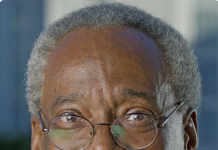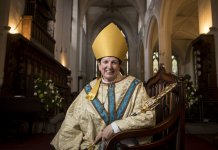Each of the call sessions will be chaired by Rose Okeno, Diocesan Bishop, ACK Butere Diocese, Anglican Church of Kenya and Mike Harrison, Bishop of Dunwich in England.
The sessions are closed to the public, and will include time for the bishops to engage in discussion within their groups, or ‘tables’ – which are the same groups in which the bishops have engaged in bible study. The groups will remain the same throughout, and have been convened by common language.
Each group has a nominated facilitator who will record written feedback. Feedback from the discussions will be given to the phase 3 group so the voices of bishops will be heard as the process continues.
A number of facilitators will be invited to give feedback during the session. Timing does not allow for every group to feed back verbally during the session, so this will be by random selection.
Making choices
During the conference bishops will consider each of the Calls together and will then be able to respond with one of three options:
• ‘This Call speaks for me. I add my voice to it and commit myself to take the action I can to implement it.’
• ‘This Call requires further discernment. I commit my voice to the ongoing process.’
• ‘This Call does not speak for me. I do not add my voice to this Call.’
Bishops will register their options using electronic machines. Those delegates who are unable to be present will also have the opportunity to register a choice remotely.
If the majority of bishops add their voices to the Call and/or ask for further work then the Call in question will become part of the official report of the Conference and passed to the Phase 3 implementation group to agree on the next steps and communicate further with the provinces and dioceses.
The outcomes will be announced shortly afterward, during the sessions, and made public later.










